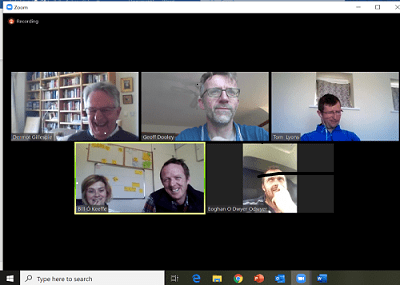I’ve just completed my first virtual Board meeting using Zoom.
The end of meeting scores were between 9 and 10 from a maximum of 10!
There was agreement that the technology worked well and enabled useful dialogue, information sharing and learning. Completing a 4 hour meeting without an additional 4 hours in travel to and from a physical location felt liberating. Personally, I feel concern for the long term prospects those in the business of hiring out meeting rooms.
Like many meetings – this one had a couple of pressing agenda items focused on short term challenges. We had an agenda prepared to address those and also to use those challenges as information about the fitness of the business system to progress the long term purpose of the business in an environment where change and unpredictability is the norm.
When there are pressing challenges – there can be a tendency to forget about purpose. Our survival instinct narrows the mind and the focus of attention. Sometimes we may regard this as a positive. But in narrowing the mind we risk eliminating a lot of useful data and therefore being blind to many of the options and opportunities presented by an immediate challenge.
For example, this morning’s challenge got us thinking about the missing lines in the P&L. What is the value of loyalty, discretionary commitment, individual flair, enhanced customer experience, high trust relationships between colleagues and so on…
Is there ever a context in which we are right to ignore the question “What does our purpose require us to do?” This question created an opening for a valuable dialogue – filled with challenge and perhaps some discomfort. It also allowed the emergence of fresh energy, insight and some excitement that there might be answers right in front us that had been hidden from us – now illuminated by a powerful question in the context of a short term challenge.
When we stop thinking primarily about ourselves and our own self-preservation it opens the door to many new relationships and ways of working. It changes our view of the landscape and of competitive threats. When an organisation truly lives for its purpose – there is no competition.
In the farming industry (as in all industries), concepts are easily copied but purpose and supporting values are very difficult to copy because they have to be lived – even in challenging times.
If these ideas are relevant to you, feel free to contact me.
Read more about organisational purpose.
Thanks to Farm Business Skillnet for supporting the meeting.
Read more about the Saturn Farms – a great example of a purpose driven business.

Share this on...